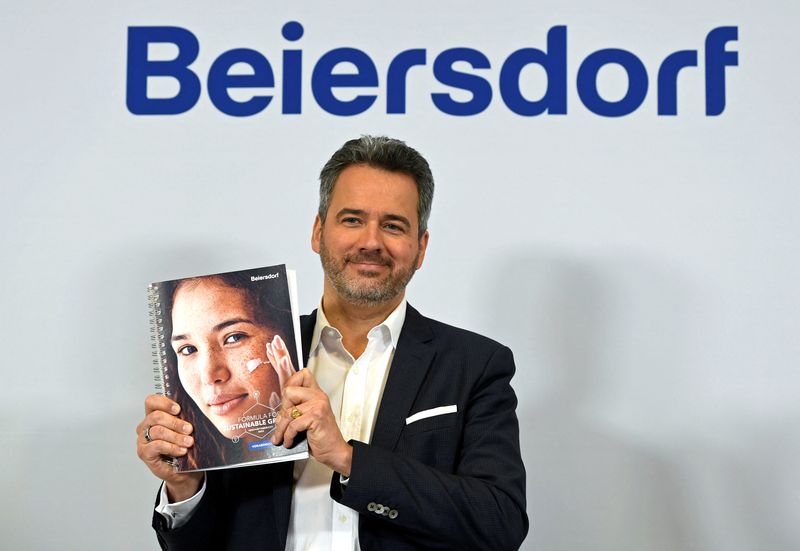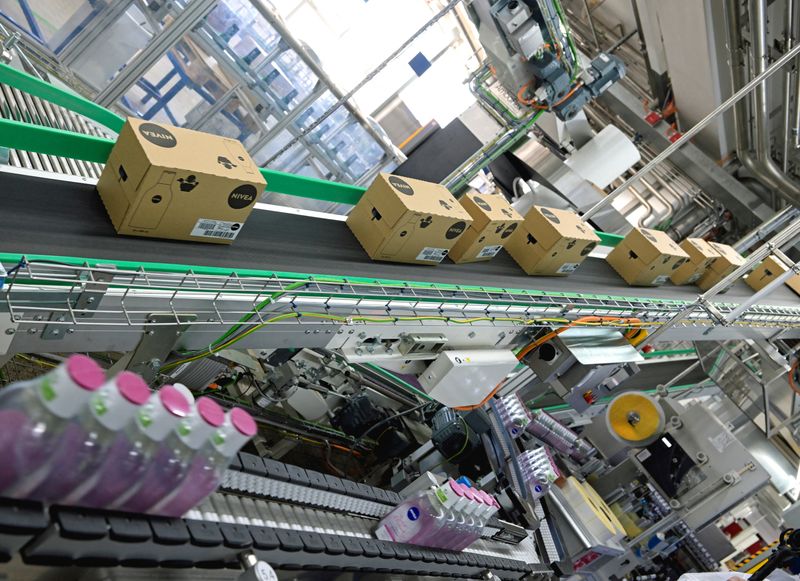BERLIN (Reuters) - Nivea maker Beiersdorf expects organic sales growth to slow this year to a mid-single-digit range after reporting double-digit growth for the first time in two decades in 2022 thanks to strong demand for its skincare products.
Chief Executive Vincent Warnery said that nonetheless the new year had started with double-digit sales growth, and he still expects Beiersdorf to increase its sales more strongly than its competitors this year.
Further price increases would be the main driver for an increase in profitability, he said, though those would be at a lower level than in 2022.
The CEO said that in China, a strategic growth market for Beiersdorf, especially for its skincare products, growth in both online retail and brick-and-mortar were back on track.
"After a very volatile January with traffic still heavily impacted by the release of Covid restrictions in December, we see a clear turnaround in retail sales starting in February," Warnery said.
Beiersdorf said it would propose an unchanged dividend of 0.70 euros per share, which analysts said disappointed investors.
The shares lost as much as 3.5% but had largely recovered by 1231 GMT, when they were down 0.1%. They were still underperforming the German blue chip index.
"Management expect to come back to the market with news on the cash return policy in the next few months," Credit Suisse said in a note to clients.
The group lifted organic sales 10.2% last year and improved its 2022 earnings before interest and tax (EBIT), excluding special factors, by 16.6% to 1.2 billion euros ($1.3 billion), reaching an EBIT margin of 13.2%.
Sales in Beiersdorf's consumer business, which includes Nivea, Eucerin and La Prairie products, grew 8.8%.
In its Tesa adhesives unit, which serves the electronics and automotive markets, sales increased 13.6%.

Solid demand for its consumer electronics products, a recovery in automotive markets and price increases helped offset significantly higher costs, the group said.
($1 = 0.9422 euros)
